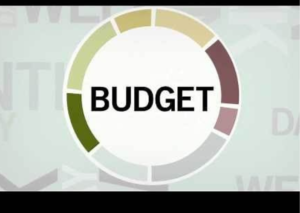Why Is Having Financial Objectives Important?
If clearly defined, finances can easily stay on track with their goals, which could result in a difficult financial situation.
When setting investment objectives, you must know your investment risk tolerance and time frame.
Know Your Risk Tolerance
Your risk tolerance is the level of risk you are willing to take when investing in stocks, bonds, and funds.
If you have a tolerance for high risks, you are ok with the possibility of losing money in exchange for the possibility of higher returns. You become an aggressive investor as a result.
Know Your Time Skyline
The time skyline alludes to the months, years, or many years you intend to hold speculation before offering it to accomplish a particular objective.
Your financial objectives influence your time horizon in part. For instance, if you intend to purchase a home within the next five years, the amount you invest in the property has a five-year time horizon. However, your time horizon is 25 years if you want to retire in 25 years.
6 Stages for Defining Monetary Objectives
- Review Your Financial Situation Before setting financial goals, you must figure out how much you can save for each given your current spending habits.
You should perceive how much you could contribute, assuming you have improved your spending and cut optional costs.
- 2. Divide Your Financial Objectives Into Three Buckets
Short-term objectives: This could set aside sufficient cash to travel to Hawaii for a family excursion. Experts have different opinions about how long a short-term goal should last. A short-term goal, for instance, can be accomplished in less than two months, while a long-term goal can take a year.
Aims for the medium term This might mean saving up enough money to put down a down payment on a new house. A medium-term goal is given a range of one to five years, while a short-term goal is given a range of two months to three years.
Long-term objectives: Investing for retirement should be your primary long-term objective. Accomplishing a drawn-out objective requires at least five years but may require at least three.
Some suggest laying out unambiguous, quantifiable short-, medium-, and long-haul objectives for money management. He suggests, for instance, investing $5,000 over two years rather than making a promise to save money.
- Prioritize Your Investing Objectives
Once you have established your Objectives, it is time to assign them a rank.
Prioritizing your objectives will enable you to move on to the next set once you have achieved the first set.
It’s easy to put short-term goals ahead of long-term ones, but you should decide which are most important first. You can enjoy yourself sooner by saving for a boat in five years, but you shouldn’t sacrifice saving for your kids’ ten-year college education.
Understanding the genuine main thrust behind your objectives focuses on the most essential to the most insignificant. When heart and emotion are involved, the likelihood of achieving the aim may be increased.
- How to Reach Your Objectives
Your objectives must be met, so devise a strategy for achieving them.
Include the steps you intend to take to reach each goal and the timeframe you have set for each step. Your action plan should specify, among other things, how you will allocate money toward achieving your goals. Posting the plan in a visible location will help you remember your steps. For instance, it suggests allocating a portion of each paycheck to an employer-sponsored emergency fund, college fund, or retirement plan.
You’ll need to put that money away differently, such as in a 401(k), high-interest savings account, certificate of deposit (CD), or IRA.
When deciding how much to contribute to your retirement account, consider your age, income, and future financial situation (such as the amount of money you anticipate receiving from an employer-based retirement plan or the Social Security program).
- Keep Track of Your Investing Progress
Laino suggests keeping track of your progress in a spreadsheet, journal, ledger, or personal finance app to stay on track with your objectives. This can assist you in making any necessary adjustments to your expenses and income.
Recognize your accomplishments. Reward yourself when you achieve a goal and acknowledge your progress. Place reminders of your financial objectives around you to inspire you. Keep a picture of your dream home or vacation spot near your mirror if you are saving for a big trip or a new house.
- Return to Your Money Management Objectives
Specialists suggest routinely checking your monetary objectives and monetary arrangement.
You should revisit the plan whenever there is a significant shift in your life or financial situation.
Review the plan to accurately reflect any altered priorities, life circumstances, or financial factors.
Consider directing this survey when you visit with a monetary counsel.



